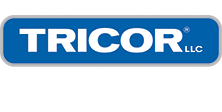 The old proverb says, “Don’t cry over spilled milk.” While it’s certainly a waste of time and energy to cry over it, you should take spills very seriously—especially those in the workplace. Whether you spill milk, coffee, oil or chemicals, any kind of workplace spill can lead to serious problems or injuries. Not only could your workers slip and fall, but they may also be exposed to dangerous substances and fumes.
The old proverb says, “Don’t cry over spilled milk.” While it’s certainly a waste of time and energy to cry over it, you should take spills very seriously—especially those in the workplace. Whether you spill milk, coffee, oil or chemicals, any kind of workplace spill can lead to serious problems or injuries. Not only could your workers slip and fall, but they may also be exposed to dangerous substances and fumes.
 Perhaps your business owns, operates, maintains or uses mobile equipment in some way or another. Many times, there is confusion as to what is actually considered “mobile equipment,” and does it differ from an “auto.”
Perhaps your business owns, operates, maintains or uses mobile equipment in some way or another. Many times, there is confusion as to what is actually considered “mobile equipment,” and does it differ from an “auto.”
First, let’s start off by understanding what “mobile equipment” is and what an “auto” is, since the two are often lumped together within the insurance universe.
To most people, when they hear the word “audit” they immediately have unpleasant thoughts and want to throw out both hands and scream “NOOOOO”. Many people associate audits with taxes and the big, bad IRS and usually nothing good can come from this experience. But not all audits are bad!
One of the smartest decisions a company can make is ensuring that their work space is safe. Workplace safety is extremely important for many reasons. When implemented correctly, it has the ability to create a more productive work environment, lower absenteeism, and boost profit margins. Most importantly, when a company has a safe workplace, their most valuable asset is protected – its people.

Administrating a Group Health plan comes with required notices and documentation that can be difficult to keep up with. The annual Medicare Part D Disclosure Notice is a prime example of the complexities employers can easily forget or possibly may not even be aware of.
As part of our value-added services, TRICOR Insurance reminds our clients around the details to complete the requirements of this two-part mandate: employee notification and CMS online disclosure.

We’ve seen it. We’ve certainly heard it before. Perhaps some of your employees have thought of it. “If only I could get hurt, or better yet, fake an injury, to collect workers compensation and not have to actually work.” What a leisured, stress-free life that would be, right!?
At TRICOR Insurance, our Employee Benefits team is continually looking for ways to protect our employer benefits clients’ health and financial well-being. As health care costs continue to rise for employers, so has the demand for voluntary benefits like Short and Long Term Disability Insurance, Vision Coverage, and Long-term Care Coverage. Because many employers find a robust benefit package too costly, Voluntary Benefits have become an ideal solution, allowing employers to offer comprehensive “a la carte” benefits that are attractive to employees without added cost to the company.
You have just opened your newest state-of-the-art facility and surgical center with beds waiting to be filled. Your medical team is highly skilled and ready to respond to the community’s emergency needs. Your local Air Ambulance provider has top-of-the-line equipment and a professionally trained flight team ready to bring the patients to your facility. So what is the problem? Nothing, you hope—right?
If your risk management and insurance program hasn’t been reviewed with some specific items in mind, you could get into additional liability, employee benefits, and workers compensation issues.
 With all of the beauty that winter brings, it consequently brings hazards as well. During winter months, parking lot hazards increase due to dropping temperatures, snow, ice, and less daylight. Unfortunately, if accidents do happen on your property, you could be liable.
With all of the beauty that winter brings, it consequently brings hazards as well. During winter months, parking lot hazards increase due to dropping temperatures, snow, ice, and less daylight. Unfortunately, if accidents do happen on your property, you could be liable.

When it comes to cyber threats, many business owners, both large and small, are a target. Unfortunately, too many business owners take the approach that it’ll never happen to them or that their company isn’t big enough.
With the recent influx of news stories about serious data breaches, it’s not just the bottom line that gets impacted after a data breach. Brand image, which can have lasting revenue impacts, can also be compromised.
While hacks affecting the largest businesses are often reported in the news, hackers can target any size business. The U.S. Department of Homeland Security reports that 31% of all cyber-attacks are directed at businesses with less than 250 employees.

